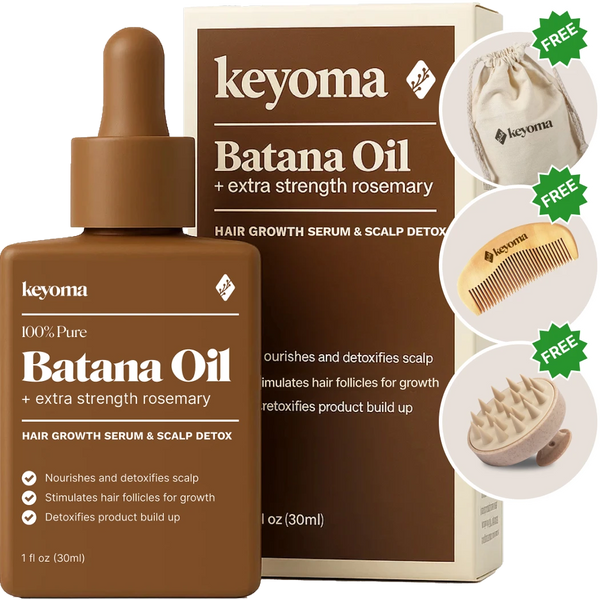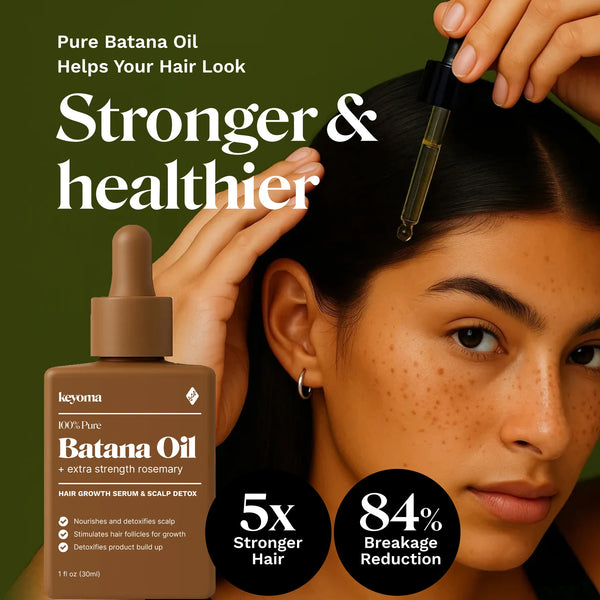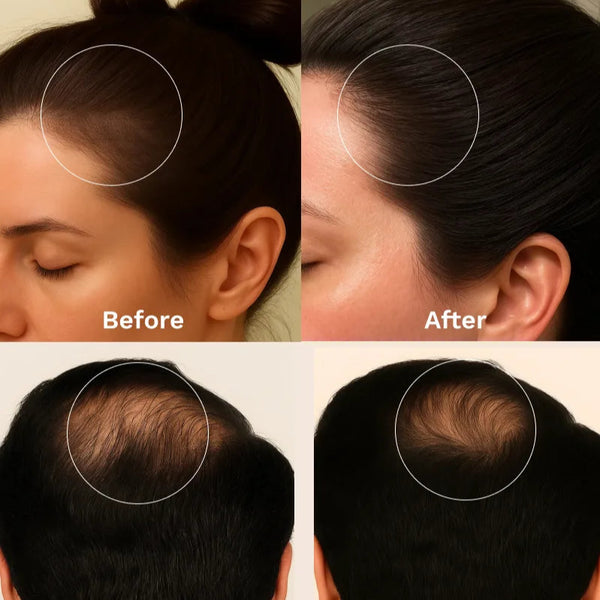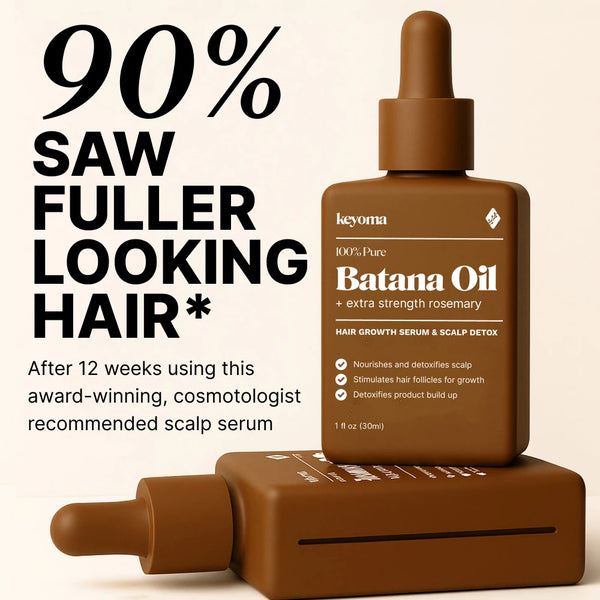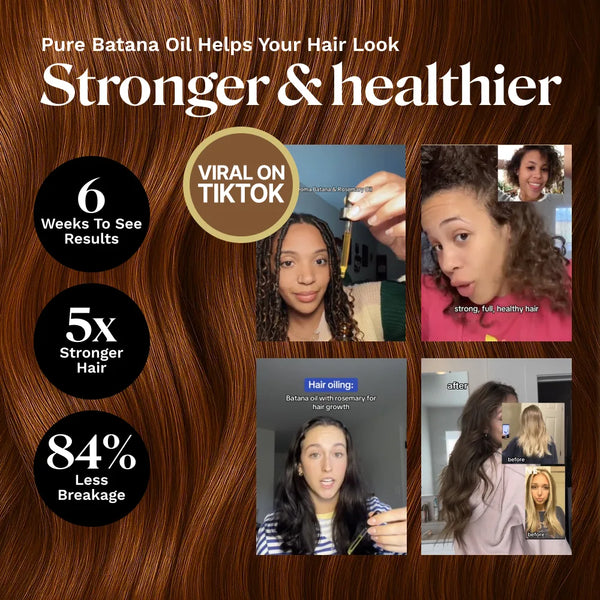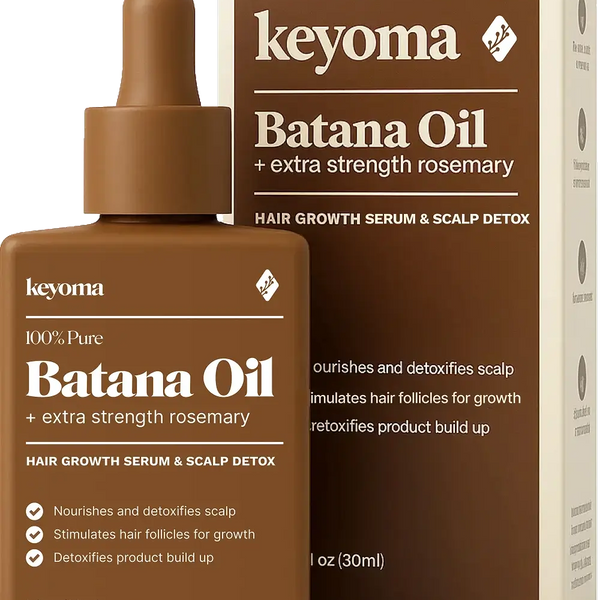In this article
Depression often brings both emotional strain and physical issues—low energy, body pain, and digestion trouble, among others.
If you feel depressed and also notice more hair falling out, you might wonder if the two connect.
Researchers haven’t confirmed a direct link between depression and hair loss. Still, depression can influence hair thinning through indirect effects like stress or poor nutrition.
Seeing extra shedding in the shower or on your pillow can add pressure and make you feel worse.
Below, you’ll learn how depression might relate to hair loss, what else causes it, and how to find support that helps.
Why Depression and Hair Loss Often Go Together
Researchers have identified a two-way connection between depression and hair thinning. A study of over 6 million people revealed strong links between both conditions.
People diagnosed with major depressive disorder faced a 90% greater chance of losing hair. In the other direction, those dealing with hair loss had a 34% higher risk of developing major depression.
A 2020 study showed that hair loss can trigger depressive symptoms in both men and women. But women often report more emotional distress. One reason is that some women see hair as tied to their identity or sense of femininity.
Hair Loss Types Triggered by Mental Health Struggles

Depression influences hair shedding in multiple ways, and certain forms of hair thinning closely relate to psychological strain.
Telogen Effluvium
Telogen effluvium ranks as the most common form of stress-induced hair thinning. Intense trauma, chronic illness, or ongoing stress can raise cortisol levels.
Cortisol helps regulate blood sugar, metabolism, blood pressure, inflammation, and sleep patterns. In short bursts, it supports your body. When levels stay high too long, it starts to cause damage.
Prolonged stress, depression, or emotional shock often triggers a surge in stress hormones. This disrupts the normal hair cycle, pushing follicles into the resting (telogen) stage too early. After several weeks or months, hair starts shedding faster than usual, leading to visible thinning.
Telogen effluvium tends to resolve once the stress fades. Recovery often involves changes like eating better, exercising regularly, practicing yoga or breath work, and seeking medical care if needed.
Alopecia Areata
Ongoing anxiety or depression can cause chronic low-level inflammation throughout the body. This kind of inflammation harms internal organs and systems—including the skin.
Hair follicles act like mini-organs. Each contains oil glands, tiny muscles, and nerve endings, forming what’s called a pilosebaceous unit. Like other organs, hair follicles react poorly to inflammation.
When inflammation persists, it can injure follicles and nearby tissue. This damage can lead to alopecia areata—an autoimmune condition where the immune system attacks hair follicles. The result is often patchy hair loss on the scalp or other body parts.
Experts believe intense emotional stress can trigger or worsen flare-ups of alopecia areata.
Trichotillomania
Depression sometimes shows up as compulsive actions like trichotillomania—a condition where people pull out their own hair to manage anxiety or emotional tension. This habit causes patchy thinning, often on the scalp, brows, or lashes.
Unlike other forms of shedding, trichotillomania usually needs mental health support, including behavioral or cognitive therapy, to help break the cycle.
Can Stress-Induced Hair Loss Grow Back Naturally?
In most stress-linked hair thinning cases, hair often grows back on its own. Lowering stress remains one of the most reliable ways to slow shedding and support regrowth.
Still, other root causes can contribute to hair loss, including:
- Scalp issues or skin conditions
- Hormone shifts or inflammation
- Poor sleep quality
- Deficiencies in key nutrients like vitamins, minerals, or healthy fats
These triggers often appear alongside stress. For instance, people dealing with insomnia often feel high stress, which increases the chances of losing hair.
How to Lower Stress Without Medication

Taking part in self-care routines can lower stress and ease anxiety. Helpful habits include regular physical activity, mindful breathing or meditation, and eating nutrient-rich meals.
Managing ongoing stress from daily life improves overall well-being. Long-term stress raises the risk of several conditions, such as:
- Heart problems
- Anxiety
- Depression
Certain elements can shape how you react to stress, including:
- Family history
- Social support
- How you cope
- Personality traits
- Past trauma
- Your job
- Bias based on race, gender identity, orientation, income, or other traits
Move Your Body Daily
A 6-week study involving 185 college students showed that doing aerobic workouts twice a week noticeably lowered both general stress and stress tied to uncertainty.
The CDC advises at least 150 minutes of moderate exercise weekly, plus two days of strength-focused movement.
If you're not active right now, begin with light options like walking or cycling. Picking something you enjoy makes it easier to stay consistent over time.
Eat to Support Your Hormones
A 2022 research review found that people who eat large amounts of ultra-processed food and added sugar often report higher stress levels.
Ongoing stress can also push you to overeat, especially processed snacks and packaged meals.
Skipping nutrient-rich whole foods raises your chances of missing key nutrients like magnesium and B vitamins, which help regulate mood and stress response.
Eating fewer processed products and choosing more whole foods can improve nutrition and support better stress management.
Examples of whole foods include:
- Vegetables
- Fruits
- Beans
- Fish
- Nuts
- Seeds
Practice Ritual-Based Self-Care
Self-care doesn’t need to be complex or time-consuming. It means taking steps to support your mental, emotional, and physical health. People who practice regular self-care often feel less stress and enjoy better daily well-being.
Simple self-care ideas include:
- Scalp oiling
- Walking outdoors
- Soaking in a bath
- Lighting scented candles
- Reading a book
- Moving your body
- Cooking a nourishing meal
- Stretching before sleep
- Getting a massage
- Enjoying a favorite hobby
- Using a diffuser with relaxing oils
- Doing yoga
What to Use if You’re Losing Hair from Stress
Medical Treatments
Doctors use several treatments to address hair loss:
Natural Oils: Many people use plant-based oils like Batana oil, rosemary oil, and peppermint oil to support scalp health and regrowth, especially when looking for a gentle, non-prescription option.
Topical Treatments: Providers may prescribe high-strength minoxidil to apply directly to the scalp.
Oral Drugs: Medications like dutasteride (Avodart), finasteride (Propecia), and spironolactone (CaroSpir) help manage hormonal hair loss.
Injections: Some providers use corticosteroid shots to encourage regrowth.
Medical Procedures: Dermatologists might suggest laser therapy or surgical hair transplants.
Choosing the best approach depends on what’s triggering your hair loss. For instance, if hair pulling from trichotillomania is the root cause, topical or oral products won’t help. You’ll need mental health care to stop the behavior and prevent future damage.
Home Remedies
You can try several at-home methods to manage hair thinning:
Non-Prescription Shampoos: Drugstores sell Rogaine (minoxidil) as an over-the-counter option in shampoo, foam, cream, or gel form.
Supplements: Boosting intake of specific vitamins and minerals can support regrowth when a deficiency causes shedding.
Microneedling: This method uses a roller covered in fine needles to trigger new growth by gently stimulating the scalp.
Hair Styling: Covering thinning spots with wigs, scarves, or hats can reduce visibility. Wearing looser styles helps prevent breakage and stress on roots.
In some cases, hair grows back without treatment. Still, ongoing or severe loss might signal a deeper health issue.
Other Possible Causes of Hair Loss
Hair loss can happen for many reasons, including:
Genetics : Inherited traits cause androgenic alopecia, often called male or female pattern baldness. This condition shrinks hair follicles over time and slows growth.
Getting Older : As people age, hair grows more slowly and may become thinner or lose color.
Alopecia areata : This autoimmune disorder targets hair follicles, leading to patchy loss on the scalp or body.
Life Events and Illness : Childbirth, recovery from sickness, or stressful life changes like divorce can trigger noticeable shedding.
Cancer Treatment : Chemotherapy or radiation around the head or neck often causes significant hair loss.
Hair Products : Dyes, perms, and relaxers contain chemicals that can weaken strands and lead to breakage or fallout.
Scalp Infections : These may cause circular bald spots or localized hair loss.
Tight Hairstyles : Styles that pull on roots—like braids or ponytails—can damage follicles and cause thinning.
Hormonal Changes : Conditions like polycystic ovary syndrome (PCOS) and certain birth control methods can create imbalances that trigger hair shedding.
Let Your Hair Recovery Be Part of Your Healing
Hair loss caused by stress doesn’t have to be permanent.
Your hair can recover—when you give it what it needs.
Keyoma Batana Oil supports that recovery with clean, ancestral ingredients trusted for generations. No synthetic fillers. No harsh chemicals. Just nutrient-rich, small-batch oil crafted to nourish your scalp and restore growth naturally.
Made for women navigating postpartum shifts. For men seeing early signs of thinning. For anyone ready to stop hiding and start healing.
Featured Product
100% Pure Batana Oil + Rosemary
↓Best Batana Oil to Buy↓
1 Month
Subscribe & Save
- 30-day supply delivered monthly $35
- 30% off for life $6
- Free haircare essentials kit $33
- Free custom wooden comb $10
- Free scalp massager $15
- Free eco-friendly travel bag $8
- 30-Day Money Back Guarantee
- Free Shipping
- Online portal for easy cancel, skip, or pause.
1 Month One Time Purchase
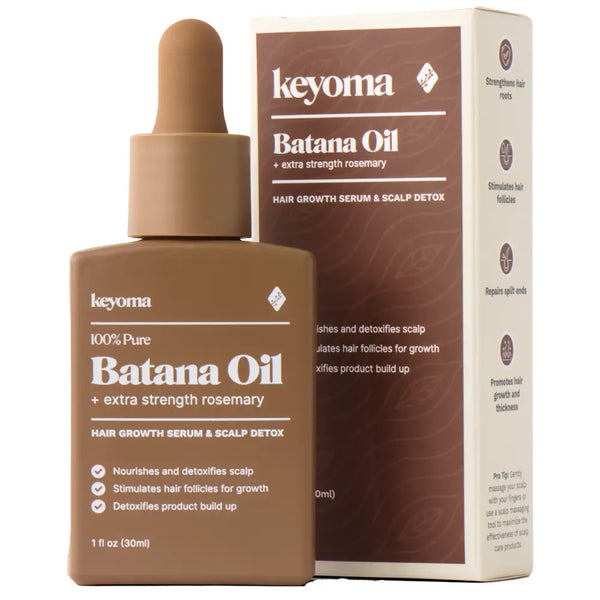
- 30-day supply $50
- 30% off for life $6
- Free haircare essentials kit $33
- Free custom wooden comb $10
- Free scalp massager $15
- Free eco-friendly travel bag $8



